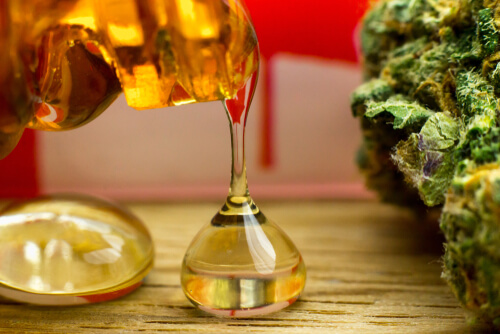
Popularly called Cannabidiol, CBD is one of the 113 known components of the Cannabis Sativa plant variety. These are cannabinoids or phytocannabinoids derived from the plants and have the potential of reacting with the cannabinoid receptors present in the human endocannabinoid system. There is one other plant derivative that most of us have heard of – THC (tetrahydrocannabinol). While CBD gets all the attention due to its non-toxic nature together with its therapeutic uses; THC is known for its psychoactive trait. A few of the medical conditions that can be treated with the use of CBD are anxiety, pain, inflammations, cancer, epilepsy, and acne, etc.
Why THC Makes You Euphoric And Not CBD?
Indeed they are chemical cousins, but when it comes to the effects of these two components, THC and CBD are different from one another. The most important difference between the two is that the former makes its users feel high and the latter does not give you a ‘high’. The main reason for this difference lies in the interaction pattern each of the compounds follows while affecting the ECS. The former activates the CB1 receptors of the brain while the latter prevents the receptor from getting activated.
Why Does CBD Have Therapeutic Benefits?
Pure CBD is famed for the assurance it holds for healing childhood epilepsy. Several clinical trials conducted for testing the efficacy of this miraculous drug reveal its neuroprotective, analgesic, and anti-inflammatory properties along with its therapeutic uses. Why do scientists claim that CBD has therapeutic benefits anyway? It is because of its ability to influence a host of receptors present in the human brain.
How Does CBD Affect Several Different Receptors?
The cannabinol or CBD is indeed a cannabinoid itself. However, it does not directly interact with the CB1 and CB2; it only indirectly signals these receptors. And that explains why the effects of THC contradict the working of CBD.
In addition to indirectly influencing these receptors, CBD also responsibly increases the level of the endocannabinoids produced by the human body naturally. CBD does this by hindering the break-down of the enzymes present. What is more intriguing is the ability of CBD to influence several non-cannabinoid receptors of the brain.
CBD’s potential to affect several receptors also extends to the functioning of the serotonin system. This results in its ability to treating anxiety. Furthermore, addiction and drug-seeking behavior can also be controlled with the use of CBD.

